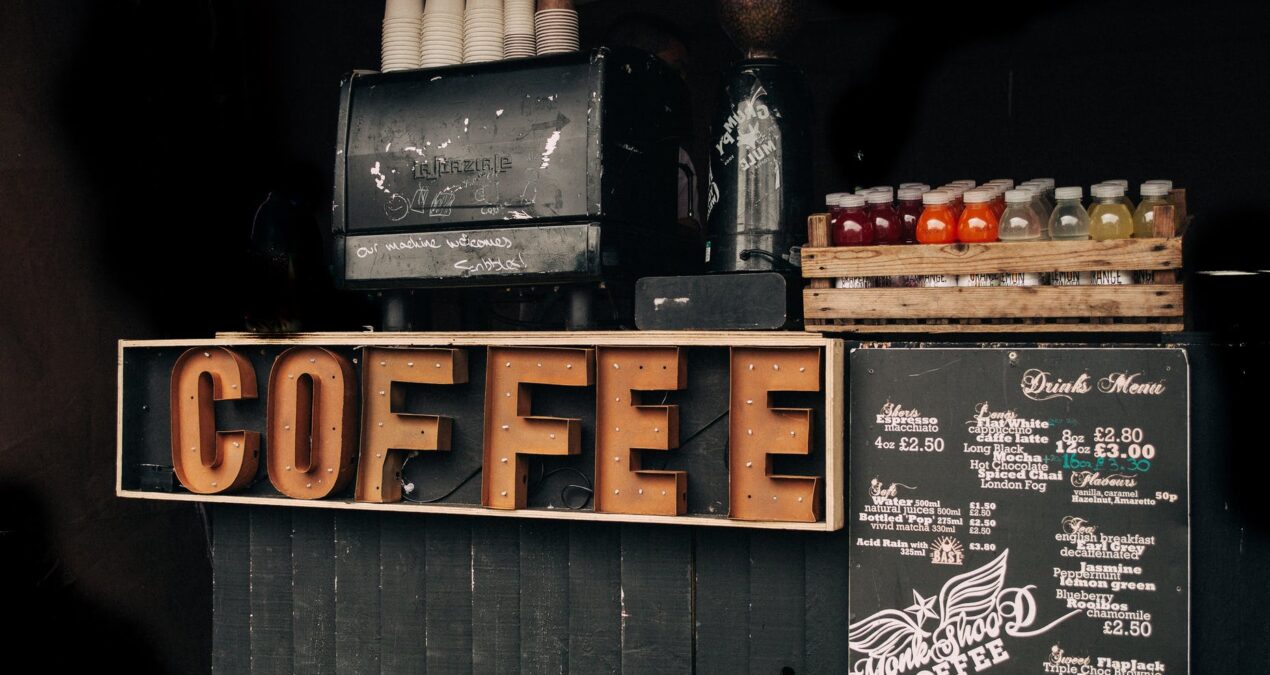Coffee is a favourite drink for most of the people. As soon as you think of coffee, the flavour reaches in your mind and you want it in no time. Coffee gives a number of benefits and in 2016, an agency of WHO removed Coffee from the list of suspected carcinogens.
There are so many types of coffee like Latte, Americano, Espresso, Cappuccino and Filters that most of the people have enjoyed! Here you’ll get few facts, benefits and some recipes to enjoy the same awesome flavour but in different ways.

COFFEE
Coffee is a favourite drink for most of the people. It was discovered in the 16th century.
Coffee consumption reduces our drowsiness and improves briskness. It also increases our concentration as well as reduces skin cancer and diabetes. It is the most traded item in the world. But more and more coffee consumption may leads to loss of bone minerals.
Coffee has good aroma. Most of the people start their day happily with a nice cup of coffee. Brazil is the top coffee producing country in the world. In India, Karnataka is the largest coffee producing state.
FACTS About COFFEE
- The roots of the word coffee are associated with the word kahwa. Kahwa in Turkish became ‘Kahaveh’ and then in Dutch it became Koffi and in Italian ‘Kafi’. Finally, when the English adopted it, they said coffee.
- Around 225 million cups of coffee are consumed every day worldwide.
- Coffee beans are called ‘beans’ simply because they look like beans, in fact they are berries.
- Although according to the stories, coffee has been discovered in Ethiopia or Yemen, but Brazil holds the crown of the highest coffee production.
- Today, coffee is a drink, but did not always drink it. According to some historians, the tribes of Africa grinded coffee berries and mixed them with a little animal fat and made them into laddus.
What about the Plants That Give Us Coffee?
Scientifically, coffee is a woody perennial evergreen dicotyledon that belongs to the Rubiaceae family. You can now forget that part. What is more important to us coffee drinkers is that there are two main coffee species, Coffea Arabica (Arabica coffee) and Coffea canephora (Robusta coffee).
Robusta is hardier, more prolific, more disease-resistant, and does not taste as good. Robusta also has more caffeine.
Arabica is less prolific, less hardy, more prone to diseases like coffee leaf rust, and has less caffeine. But Arabica tastes significantly better than Robusta, so your gourmet coffee brands are almost always Arabica.
Do you know?
Coffee beans are actually green, until roasted to your preference. The three types of roasting coffee beans:
- Light Roast, this contains crisp acidity, bright flavours and highest in caffeine.
- Medium Roast, this contains moderate acidity, balanced flavours and are slightly sweet.
- Dark Roast, this contains low acidity, bitter – smoky flavours and have least caffeine.

The Whole Process from Planting the Coffee Seed to Your Cup of Java
Yes, Coffee starts with a Seed (the coffee bean).
To grow coffee, a coffee farmer plants the beans (seeds) in moist and shaded soil. This is typically done in a nursery where the seedlings are protected from bright sunlight and watered often.
When the plants are strong enough, they are planted in the field. Farmers do this in the rainy season to let the coffee plant establish its root structure before the soil dries out.
Waiting and Then Picking Coffee:
When the coffee farmer plants coffee, he needs to wait for the plant to mature before he can get a coffee crop. Coffee takes three to four years to mature and produce fruit, the coffee cherry.
Coffee is ready to pick when the cherry is a deep and bright red. And, when the coffee cherry is ripe, there is also a distinctive odor in the field, another indication that the time is right to bring in the coffee crop.
In most coffee growing regions, there is one harvest a year. However, in some countries like Colombia, Arabica coffee has a primary and a secondary harvest each year.
Soaking and Raking the Coffee:
Processing and Drying:
The coffee farmer needs to process his picked coffee quickly. Otherwise, it starts to spoil. A few bad beans, called “stinkers” can ruin a batch of coffee. There are two ways to process coffee, dry and wet.
Dry Coffee Processing:

Sunlight, Raking, and Time dry processing is pretty basic. The cherries are spread out in the sun. A worker rakes the beans frequently to turn them over and make sure that all of them are drying. And, the workers must cover the beans in case of rain and at night so that the morning dew does not moisten the coffee again.
They keep doing this until the cherries are dried to 11 per cent moisture content. This can take several weeks! Small coffee farms in dry areas and coffee farmers without a lot of money use this process.
Wet Coffee Processing:
First You Soak the Coffee but You Still Need to Dry It! With wet processing, the cherries are fed into a pulping machine. This separates pulp and skin from the coffee bean.
Health Benefits: Based on Science
Coffee is one of the most consumed beverages in the world, and blamed for many ills from stunting your growth to causing heart disease, but newer research shows that it may actually have health benefits. Here are 12 reasons drinking coffee may be healthier for you than you thought…

| Improves Energy Levels | Contains a stimulant called caffeine, which helps improve energy levels |
| Improves Metabolism | Raise your metabolism and help you burn fat at a faster rate. |
| Helps You Exercise Better | Black coffee has been proven to be one of the most effective supplements ever for improving exercise output. Drinking coffee causes a spike in adrenaline and causes an increase in exercise performance by around 11-12%. |
| Protect against Type 2 diabetes | Helps the body utilise insulin and protects insulin-producing cells. |
| Make You Smarter | Blocks an inhibitory neurotransmitter in the brain, which has a stimulating effect |
| Promote Heart Health | Support heart health by protecting against arterial damage caused by inflammation. |
| Loaded With Antioxidants | Antioxidants found in a cup of coffee aids in the fight against inflammations. |
| Helps Fight Depression | Activates neurotransmitters that control mood, including dopamine and serotonin. |
| Good for Your Liver | Helps to protect the liver against various types of diseases including cirrhosis. |
| Guards against Gout | Antioxidant properties may decrease the risk of gout by decreasing insulin. |
| May prevent Tooth Decay | Scientists at Rio de Janerio’s Federal University found that coffee breaks down bacteria which causes plaque. Drinking coffee could slow down or even prevent tooth decay. |
| Lower’s Risk of Some types of Cancer | Studies have found that coffee can be protective against two types of cancer. This includes liver cancer and colorectal cancer. In this study, results concluded that coffee drinkers have a 40% lower risk of liver cancer while those who drank 4-5 cups a day had a 15% lower risk of colorectal cancer. |
Some people say coffee is bad for you, they often point to a few things and these are… Insomnia, Dehydration & Adrenal fatigue

- Insomnia is usually a result of drinking coffee too early. Since effects can last up to 10 hours after drinking, simply stop drinking coffee before noon and you should be fine
- Dehydration – Yes coffee is a natural diuretic, but this problem is cured by drinking more water. Which you should be doing anyway…
- Adrenal fatigue – This is not even a real medical condition. Anyone spouting this sort of nonsense doesn’t deserve your time or attention.
Other Adverse Effects
Caffeine (from coffee or any other source) can increase nervousness, anxiety, jitters and restlessness. It can release the stress hormone cortisol, which can increase your blood pressure, heart rate and exacerbate anxiety.
Acids in coffee can irritate the stomach and lining of the small intestine, particularly in people suffering from digestive issues such as ulcers, IBS, and Crohn’s disease. For some, the acidity in coffee beans can cause acid reflux or heartburn.

How many times you can drink coffee in a day?
If you eat calories and fat-free coffee, then you can drink two cups of coffee a day, more than it can harm your health.
The coffee has caffeine which keeps you fresh and keeps you on alert mode for 6hrs, now you consume more than you can also vibrate in your body, 100gm caffeine in one cup is enough for you to keep alert mode on. As per Modern Science, you can take 400mg caffeine in a day, not more than that.

Drinking coffee is one of the healthiest things you can do to protect yourself against major diseases, increase physical performance, enhance brain function and contribute to longevity. With such astounding health benefits, coffee could be considered a natural super food.








Mark
Thanks for your blog, nice to read. Do not stop.
Monu
Thanks for the update
Prerna Mishra
Any benefit for skin?
Yashwita
This you will get in some upcoming articles.
Thanks
Mannat Srivastava
Loved it!!